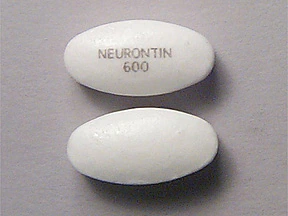Bipolar disorder or manic depression refers to a psychiatric condition characterized by several types of mood swings or disorders. Patients suffering from bipolar disorders have bouts of mood elevation bordering on abnormality, clinically called mania.
The manic episodes may also be accompanied by depressive symptoms or episodes (mixed episodes) or may occur one after the other (rapid cycling). These patients may also experience periods of normal mood. Extreme cases of manic episodes may cause certain psychotic symptoms like hallucinations and delusions.
Bipolar disorder is further subdivided into bipolar I, bipolar II, cyclothymia, and different other types according to the specific characteristics and severity experienced by the patient. Disruption of day-to-day normal activities, suicidal tendencies, and general feelings of distress are the usual symptoms associated with bipolar disorder. Environmental triggers as well as genetic factors are linked with the condition of bipolar disorder. Medications specially created for mood stabilization, different other psychiatric drugs, as well as psychotherapy are the common treatment methods followed in dealing with bipolar disorder.
Treatment of bipolar disorder with Neurontin
Neurontin is the brand name for Gabapentin. It was earlier created for treating epileptic conditions. Currently, Neurontin is frequently used for relieving pain, specifically neuropathic pain, and migraine headaches. Neurontin has also been identified as having certain mood-stabilizing effects.
Gabapentin or Neurontin is mainly different from other categories of mood stabilizing medications in two primary ways. Firstly Neurontin has been found to be effectively working in some patients who have otherwise not responded to other mood stabilizers or antidepressants. Secondly, Neurontin’s comparatively benign side effects have encouraged mental health experts to prescribe the drug for treating bipolar disorder.
Neurontin has successfully controlled mixed bipolar disorder conditions as well as rapid cycling in those patients who have not adequately responded to carbamazepine or valproate. Neurontin is supposed to contain significantly higher anti-agitation and anti-anxiety properties than valproate and carbamazepine.
Drug dosage
When Neurontin is used for treating a bipolar disorder or as a mood stabilizer, generally 900 to 2000 mg per day is the prescribed dosage. The response of different patients with bipolar disorder to Neurontin varies. Sometimes antidepressant and antimanic effects start in a week or two. In other cases, the positive effects of Neurontin may show up in a month’s time.
Drug Efficacy and Safety
Neurontin is generally well tolerated. There has been a lower number of cases of weight gain or hair loss compared to lithium and Depakote. In contrast to Lamictal, Neurontin works better in reducing mania than depression. The main feature of bipolar disorder as we all know is mania. There are no negative reports relating to Neurontin reacting adversely with MAOIs, lithium, Depakote, and Tegretol.
Some of the rare side effects of the use of Neurontin include sleepiness, dizziness, fatigue, tremor, nystagmus, and double vision. These side effects usually occur in the initial few days of increasing the drug dosage and generally fade with time.
Neurontin should be used cautiously in patients suffering from renal impairment on account of the probability of accumulation leading to toxicity. An experiment with Neurontin on rats showed the development of adenocarcinomas.
Effects of abrupt withdrawal of Neurontin
Neurontin must not be abruptly discontinued after prolonged use. Sudden discontinuity of the drug may induce withdrawal symptoms akin to alcohol or benzodiazepine withdrawal. Steady reduction extending over a few weeks and months has been known to prevent or lower the syndromes of withdrawal.
In 1993, Neurontin came as a breakthrough drug with an array of psychological and physiological benefits. Pfizer made the claim of the drug is absolutely effective in controlling bipolar manias, psychosis, and mental agitations. However, investigations down the years have proved Neurontin’s efficacy as an anticonvulsant drug more than in the treatment of the bipolar disorder.
FDA has officially approved Neurontin as an effective anticonvulsant. Neurontin is thus used as an off-label drug in the U.S.A for treating bipolar disorder.

